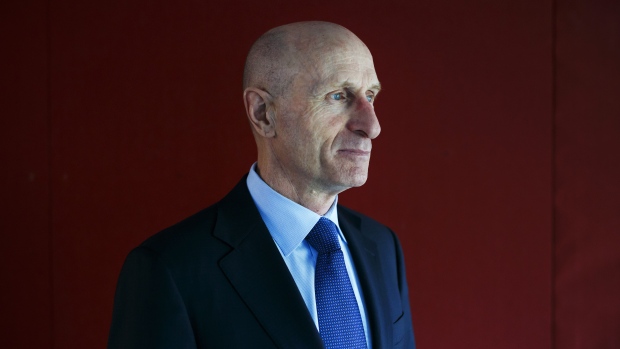Jul 13, 2018
Was Schmidt overpaid? Hydro One’s ex-CEO was ‘middle of the range,’ analyst says

When it comes to Canadian utility leadership compensation, Hydro One Ltd.’s (H.TO) retiring CEO Mayo Schmidt is in the middle of the pack.
Schmidt, who guided Hydro One through a successful initial public offering on the Toronto Stock Exchange, announced his retirement Wednesday following a months-long public lambasting from Doug Ford during the Ontario election campaign. Ford vowed to fire the former Saskatchewan Wheat Pool executive, criticizing his compensation and calling Schmidt the “$6-million man,” as he seeks to reduce electricity prices.
Schmidt’s total compensation in 2017 came to about $6.2 million, which includes $1.1 million in base salary, $3.5 million in stock awards and options and an additional $1.55 million in incentives and pension payments, according to Bloomberg data. His compensation in 2017 increased 38 per cent from the $4.5 million he earned in 2016, and 343 per cent in 2015 when he made a relatively scant $1.4 million. His total compensation could top $9 million for stock awards he would otherwise lose, including $1 million in pension payments, according to an analysis by the Globe and Mail Thursday.
“If you actually compare it to what other board members and CEOs make at Canadian publicly-traded regulated utilities … Hydro One’s compensation for its CEO of just over $6 million would be right in the middle of the range,” said Darryl McCoubrey, vice president of utilities and infrastructure at Veritas Investment Research, in an interview with BNN Bloomberg Thursday.
“It’s not like he was massively overpaid compared to some of the other positions in Canada.”
McCoubrey added that Hydro One’s board compensation that averages $177,000 is below the compensation other directors make at some of its utility peers such as Emera Inc., Fortis Inc. and Canadian Utilities Ltd.
Raymond James analyst Frederic Bastien said in a report released to clients Thursday that Hydro One has agreed to consult with the Ontario government regarding executive compensation going forward.
“With the nomination of a new board expected to be completed by mid-August, a cloud will likely hang over the stock in the near-term,” said Bastien.
By comparison, Fortis CEO and president Barry Perry earned $9.2 million in 2017, according to Bloomberg data. That includes a $1.2 million base salary, $2.4 million in an annual bonus, $4.8 million in stock and option awards and an additional $800,000 in incentives and pension payments.
Meanwhile, former Emera CEO Chris Huskilson earned $5.7 million in 2017, according to a management circular released by the company. Huskilson, who recently retired from his post earlier this year, made a base salary of $1.1 million last year, stock and option awards of $3.8 million, and additional incentives of about $860,000. Scott Balfour, who was recently appointed as Emera CEO, earned $2.6 million as the company’s chief operating officer in 2017, according to the company.
Canadian Utilities CEO and chairwoman Nancy Southern made $2.3 million in 2017, which includes a $881,000 base salary, $1.2 million bonus and $227,000 in stock awards and options.
Algonquin Power & Utilities CEO Ian Robertson made $3.9 million last year, which includes a $900,000 base salary, $1.9 million in stock awards and $1.1 million in incentives.
McCoubrey said that it’s possible investors may view Premier Ford as a “activist investor” given his tone on the compensation package for companies with close financial ties to the province.
Editor’s note: An earlier version of this story misidentified Emera’s CEO. BNN Bloomberg regrets the error.




